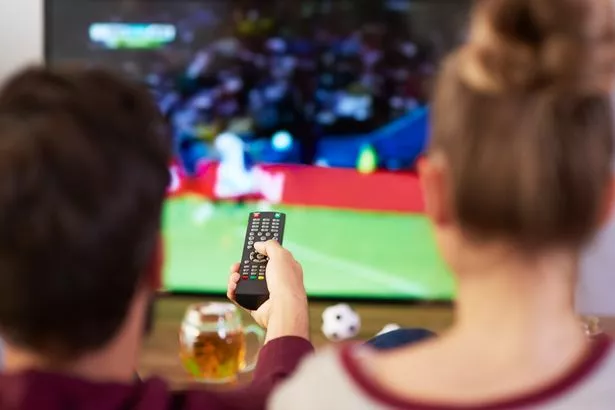Full list of who can cancel TV Licence and get £169.50 refund but beware recording rule
The TV licence fee was hiked in line with inflation in April and now stands at £169.50
A shocking four in 10 people are unaware of what the TV licence actually covers, suggesting some may not need one. The price of a full TV licence has now increased to £169.50, in line with inflation since April, adding a significant sum to annual costs.
This makes it essential to confirm its necessity, especially as incomes continue to be stretched. The licence is mandatory for anyone who streams live TV or uses BBC iPlayer, with non-payment risking a substantial fine.
However, a survey carried out earlier this year by FCA-regulated credit broker Viva Money revealed that a 43% of UK adults don't fully understand what the TV licence involves. Those who primarily watch platforms like Netflix, Disney+, or catch-up services (excluding BBC iPlayer) might find they don't need a licence at all.
READ MORE: 'Festive Flop' affecting 4.3 million men in UK amid Christmas over-indulgenceREAD MORE: Diabetes warning signs that may appear in your feet - when to seek urgent helpThis could allow them to cancel their payment and potentially claim a refund. All UK households will need a TV licence if they watch or record TV programmes as they're broadcast.
This rule applies to all programmes on any channel, from soaps and documentaries to films. Even if these programmes are broadcast live on a computer, laptop, tablet or phone, rather than a TV, a licence is required to watch them, reports Teesside Live.
Additionally, households need a licence if they download or watch programmes broadcast on BBC iPlayer - whether live, catch up, or on demand.
The licence covers online TV services such as ITV Hub, All 4, Amazon Prime Video, Now TV or Sky Go. However, unlike with BBC iPlayer, a licence is not required if a person only ever watches catch-up programmes on these TV services.
If a household finds themselves only watching catch-up TV (not including BBC iPlayer), they won't need a TV licence - as long as they're not using the TV services to watch anything live. Households also don't need a TV licence to watch certain streaming services, like Netflix, YouTube or Disney+.
For those considering cancelling their TV licence, it's crucial to ensure everyone in the same household follows the rules. To cancel a TV licence, if a household is certain that they no longer need a TV licence, they can inform TV Licensing by completing the refund and cancellation request form. TV Licensing may then pay a visit to the address to confirm if the decision is correct.
It says these inspections find one in five households do end up needing one. If a licence is needed, the household will have to pay the full licence fee and may risk prosecution and a fine.
Fines vary depending on location and can see people in UK mainland face a penalty charge of up to £1,000, while those in Guernsey and Jersey could face fines of up to £2,000 and £500 respectively. Brits can request a TV licence refund if they won't need their licence again before it expires, and they have at least one complete month left on it.
According to the TV Licensing website, Brits can apply for a refund up to 14 days before their TV licence is no longer needed. If the licence has already expired, they may still be eligible for a refund, as long as less than two years have passed since the expiry date.
The main circumstances in which refunds are typically considered include:
- The TV Licence was bought in error
- Refunds in consequence of a free TV Licence application
- The address is covered by another licence
- The death of the licence holder.
- A replacement TV Licence has been bought
- TV receiving equipment is no longer in use
- Blind concession refunds
To apply, individuals must fill out a brief form and may need to provide evidence showing they no longer require the licence. TV Licensing will review the application, determine eligibility, and calculate the refund amount, usually based on full unused months.
Refunds are issued via cheque or direct deposit. To check their licence expiry date, Brits can log into their online account.
Some people may also be able to apply for a discount on their TV licences, ranging between 50 per cent and even 100 per cent. More information about these can be found here.
READ MORE: 850,000 Brits missing out on DWP £2,677 and 'game-changing' extra benefitsREAD MORE: Nando's to open 14 more UK restaurants in 2025If you're 75 or over, you can get a free TV licence if you're 75 or older and you either: The licence covers everyone living at your address. You can apply when you're 74 if you already receive Pension Credit.
You'll still need to pay for your licence until the end of the month before your 75th birthday. After that, you'll be covered by your free licence.
If you're registered blind, you can get a 50% discount if you're registered blind or live with someone who is. The licence must be registered under the blind person's name. If it isn't, a new application can be made to transfer it.
When applying, the existing TV licence number will be required. Applications for a licence if you're registered blind can be made on the TV Licensing website.


